Digital 52 2️⃣5️⃣ - Reviving an old building, Running a multipurpose space, Growing a mixed community of locals and remote workers, Being located on an island: the story of Talleres Palermo.

Today’s story will bring you to Las Palmas, the main city of Gran Canaria, a Spanish island located off northwestern Africa. What’s there? A great multipurpose space that has integrated coworking within its concept: Talleres Palermo.
Multipurpose Spaces - Remote and Rural Spaces - Sustainability
Read the full story of Talleres Palermo on page 265 of “Around The World in 250 Coworking Spaces”.
Coworking can be approached in many ways. For some, it is at the core of their concept, while for others, it is just one of many components. However, what happens when you combine coworking with other lines of business? How do you integrate it with your overall strategy? Let’s take a trip to Gran Canaria, a Spanish island in the middle of the ocean, where we'll find a multipurpose space called Talleres Palermo. What makes this space unique is that its founders have made it their mission to revive an old building sustainably, and as part of the repurposing process, they included coworking. Angel, Rafa, and Florencia have found a beautiful way to preserve, educate, support, connect, and positively impact their local community by creating this gem of a space that has become a favorite spot for remote workers to return to.
➡️ A little refresher
Who’s behind the featured space?
Meet Rafa Barneto, Florencia Hinze and Ángel Fernández.
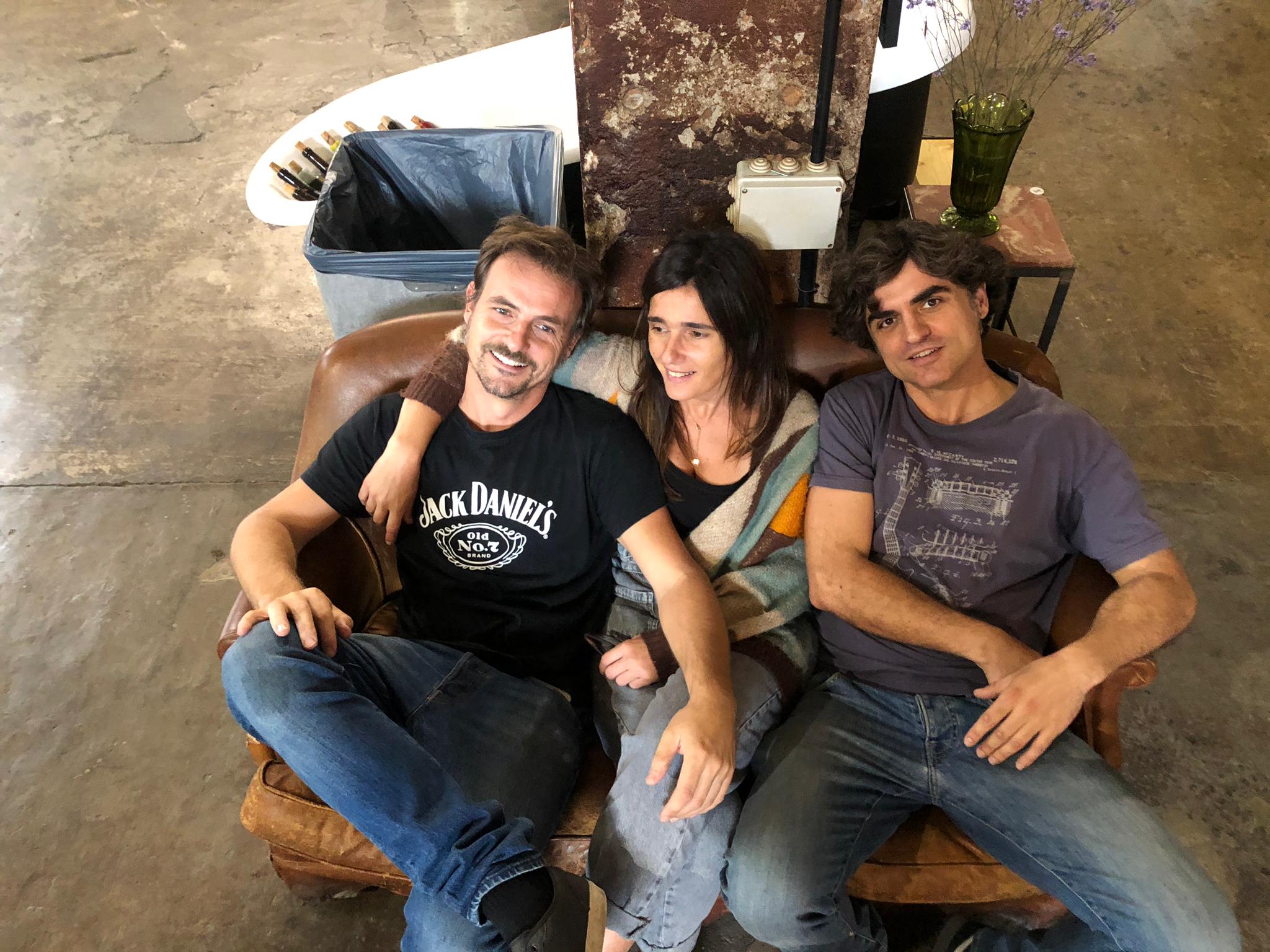
“Florencia and me, Angel, are a couple who took the decision of reusing this old neglected building. Rafa is an architect friend of ours who was the perfect partner for this adventure because he was involved in the first coworking running in Gran Canaria many years ago.”
➡️ Key Figures
- Opening year: 2018
- Size when they started: 1,200 sqm approx.
- Size today: Same
➡️ A little tour around Talleres Palermo
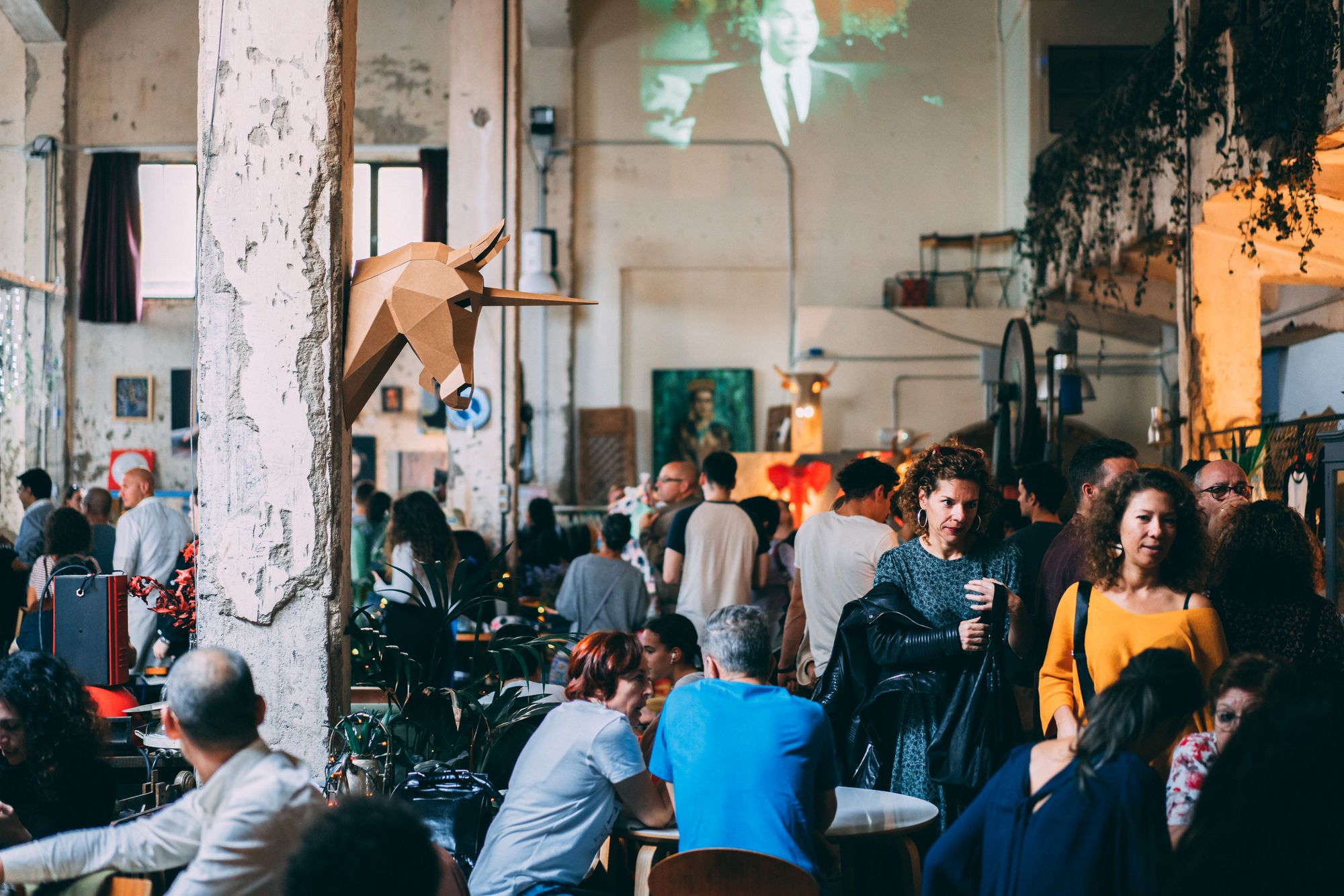
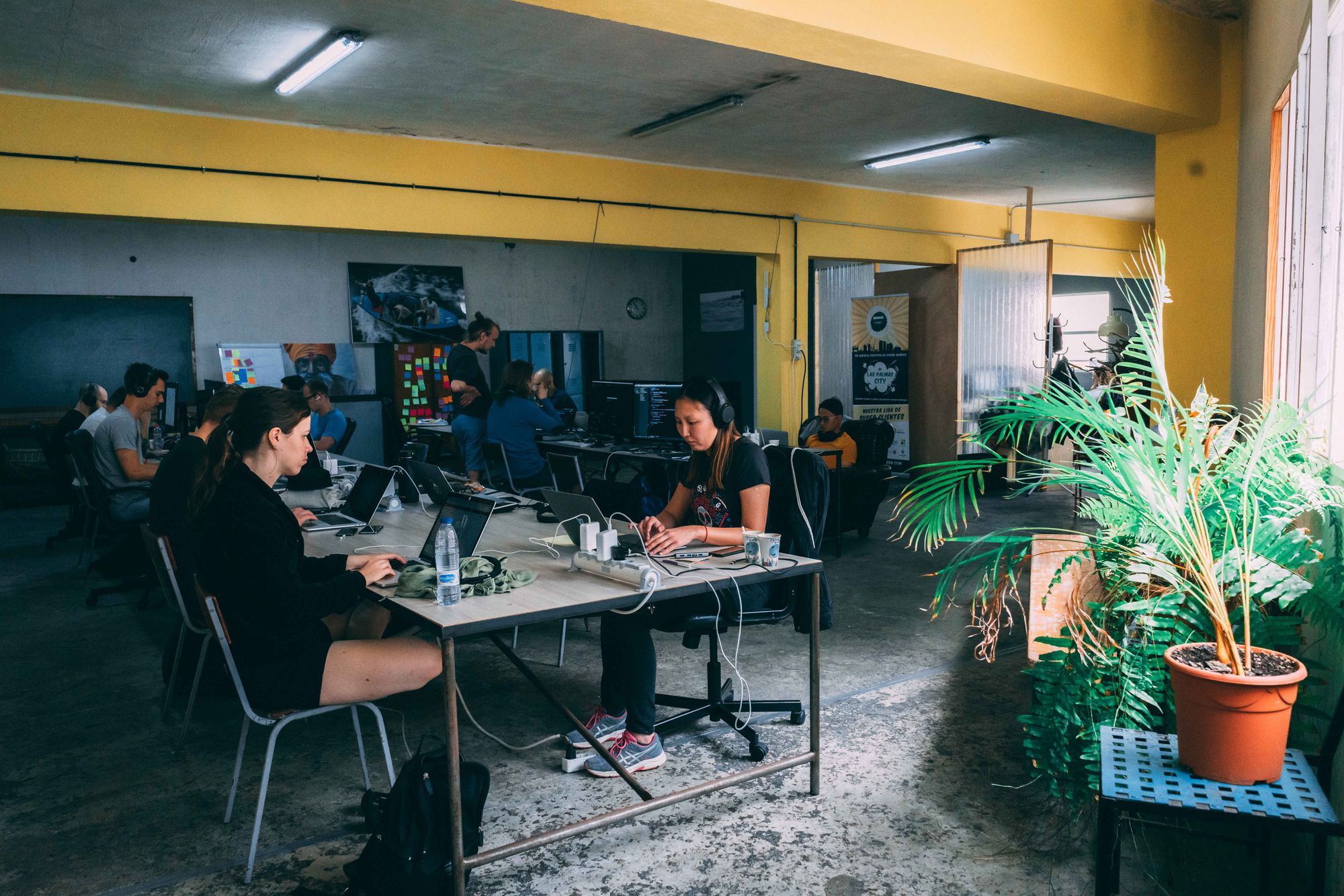
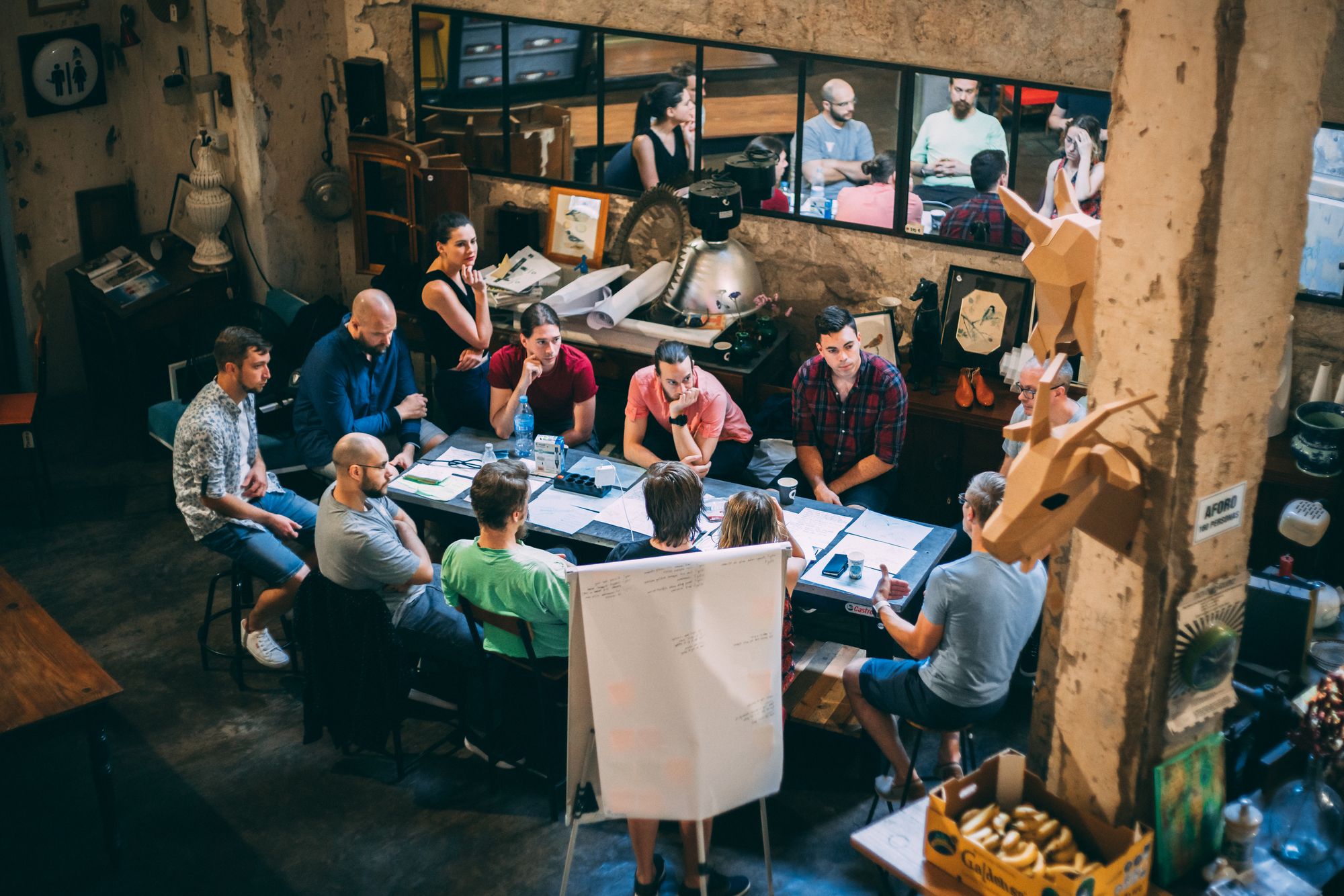
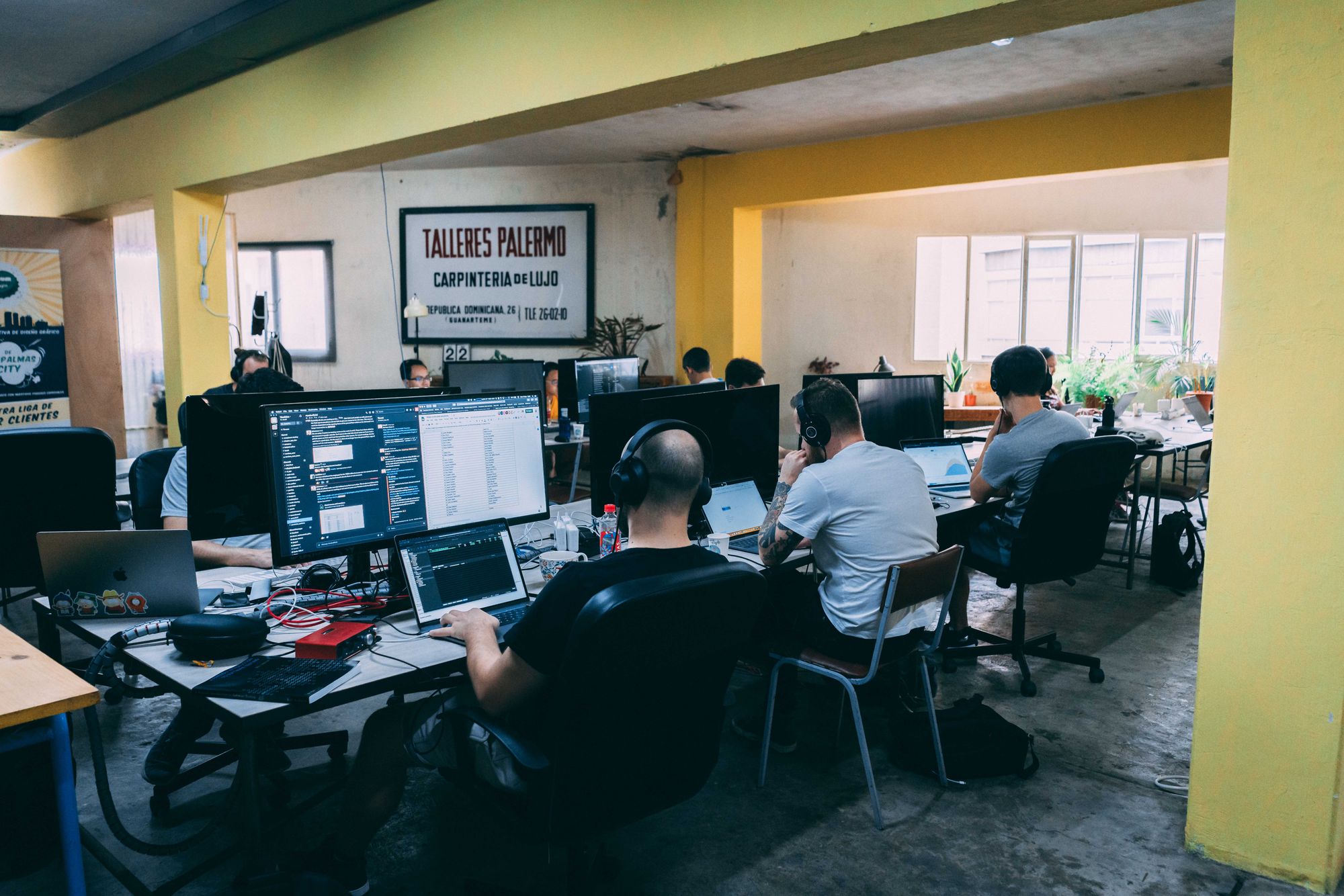
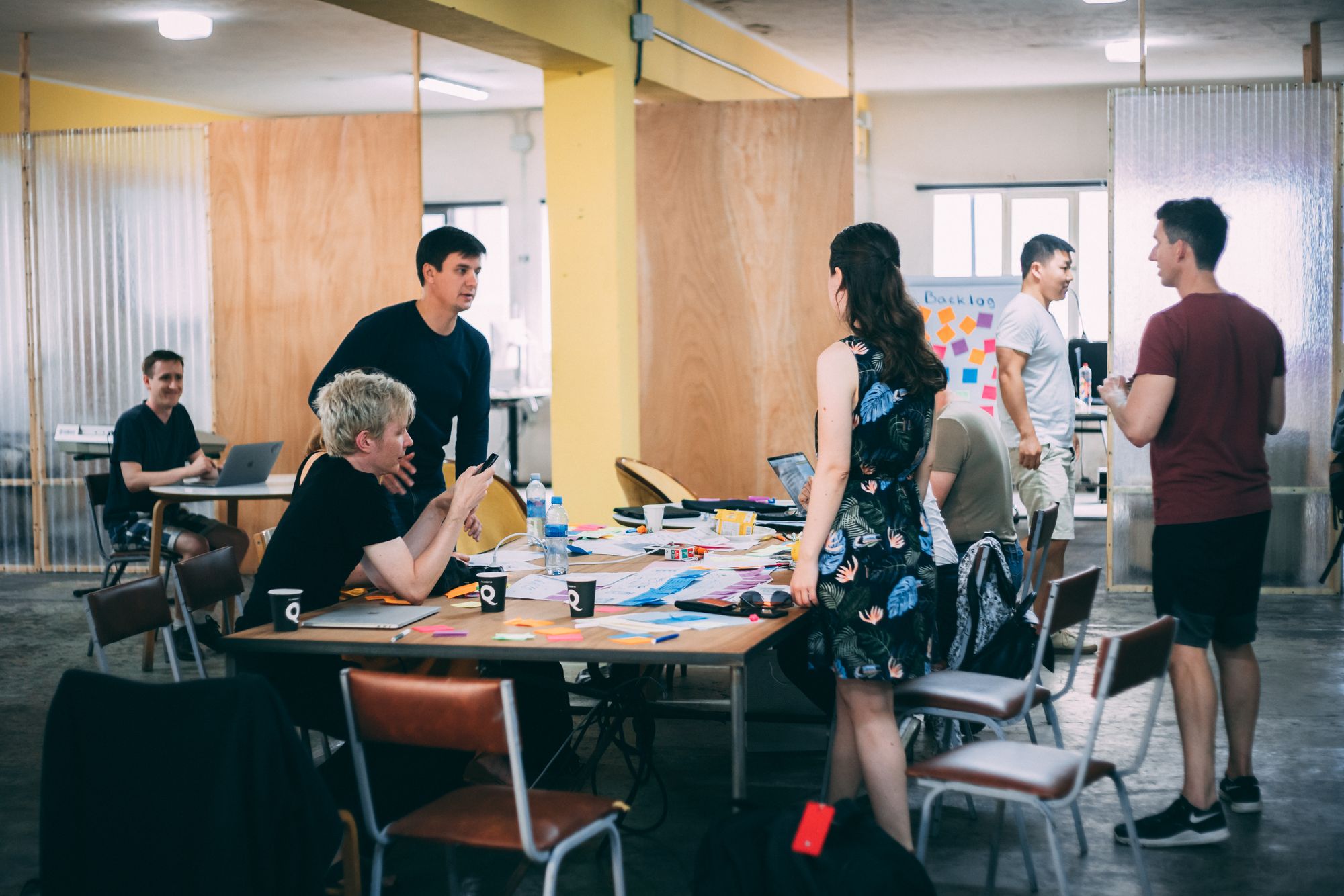
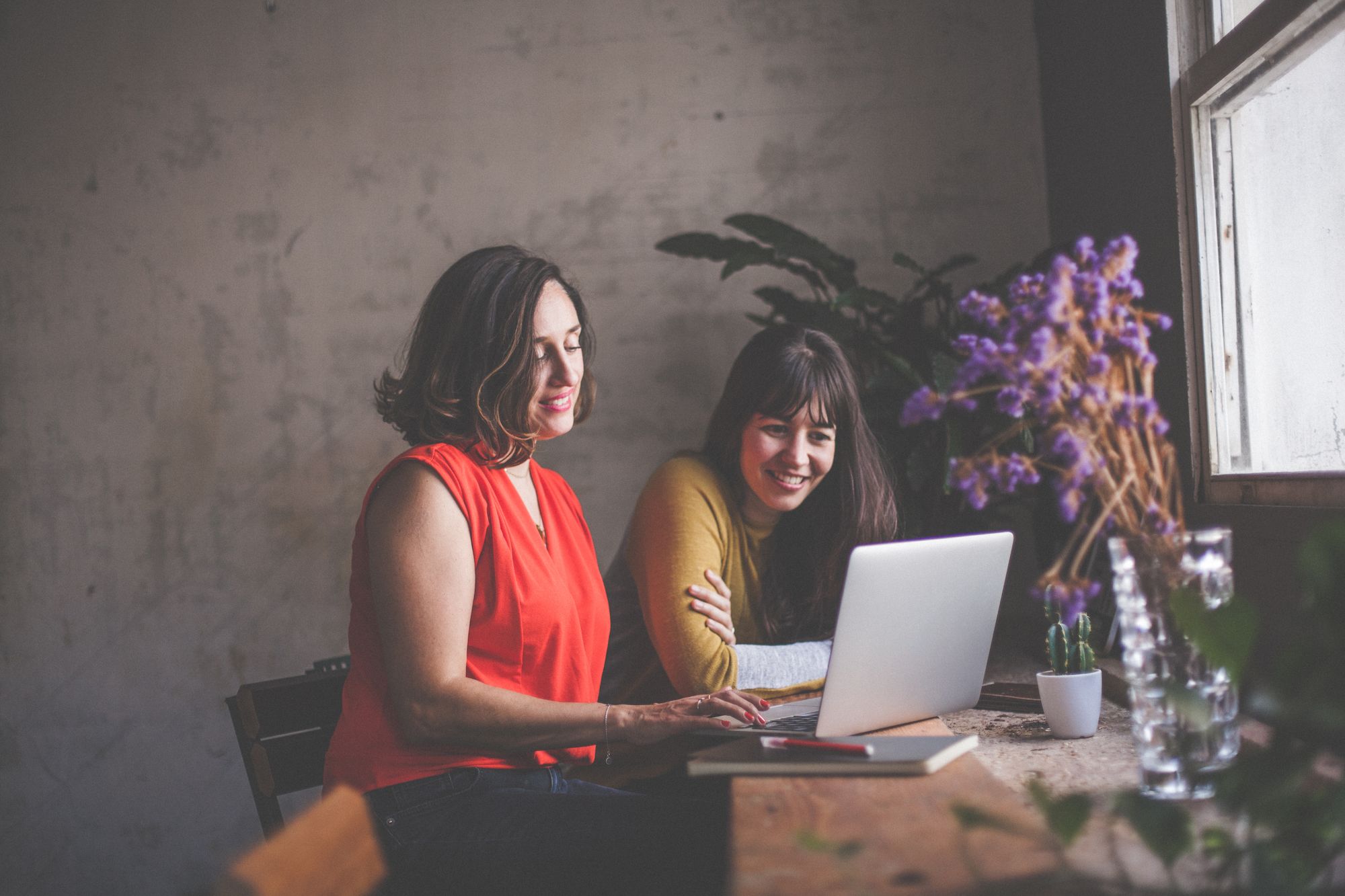
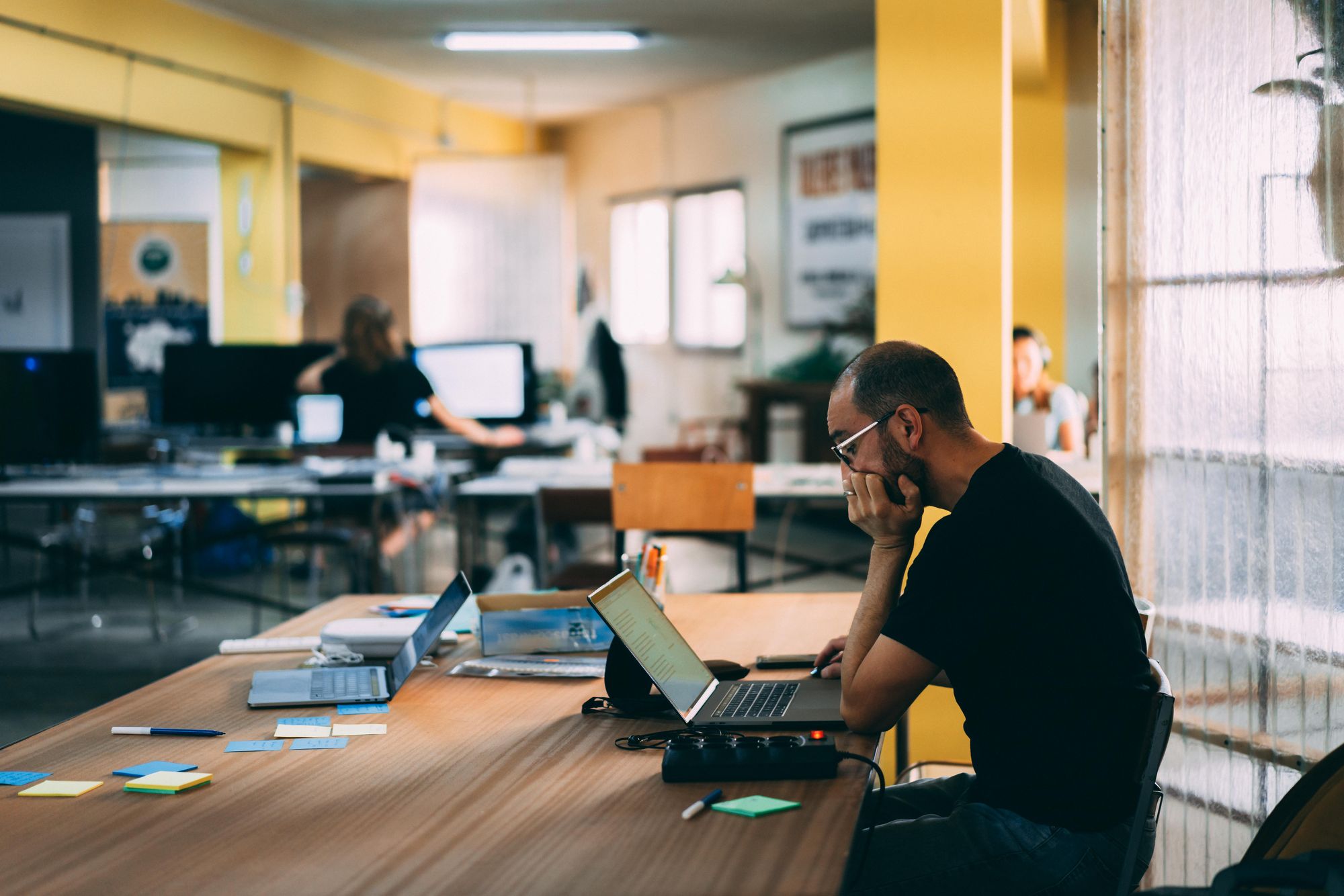
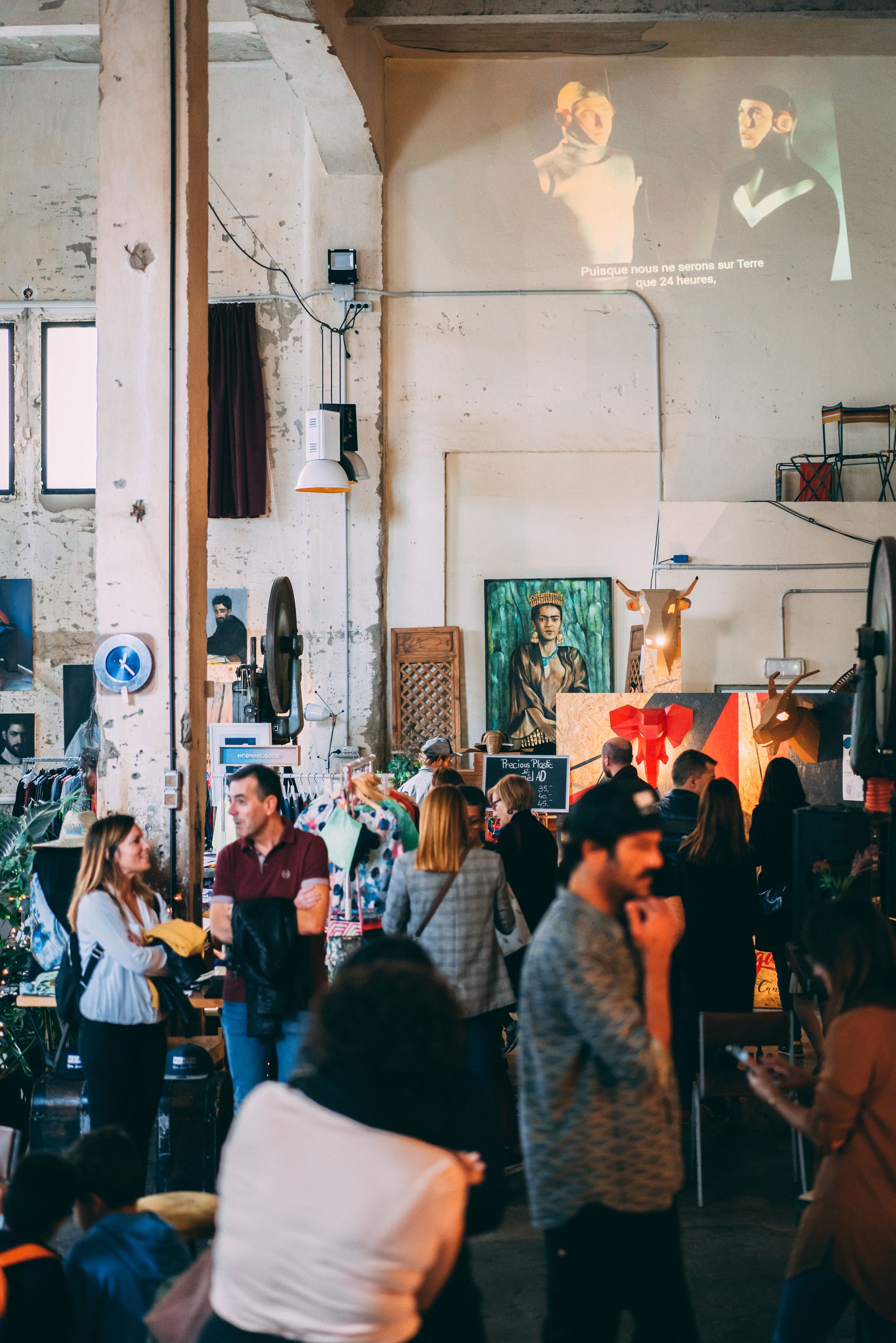
➡️ Behind-the-scenes
Things you didn't read in aw250cs
“The idea was to repurpose a ”dead“ building in the city and create a modern, sustainable space where talented young individuals from around the world can work and contribute to the growth of our city.”
“New coworkers are learning about urban agriculture with us and have been provided with their own dedicated space in the orchard to cultivate plants, which provides a relaxing break from work when watering and tending to them.”
People are coming here and telling us that they chose Gran Canaria because of us, and they feel good working here.
Angel Fernandez, Co/Founder of Talleres Palermo
➡️ Talleres Palermo Today
The pandemic has clearly accelerated the adoption of remote work policies among companies. With greater flexibility in choosing where we work on a daily basis, many people are now opting for the “365 days under the sun” lifestyle. This trend raises an interesting question for spaces like Talleres Palermo, located on a sunny island: how has it impacted their operations? We recently had the opportunity to chat with Angel and learn about the post-pandemic changes they made to the space, on top of their constant commitment to making a positive impact on their community, neighborhood, and the planet. Ready to be inspired?
💫 2 Major Changes
Following the pandemic and a successful marketing campaign by the local government, Las Palmas has gained momentum among a new crowd: remote workers. How has that popularity impacted locals and Talleres Palermo? Keep reading to find out.
A new crowd means new demand. In a post-pandemic world, Talleres Palermo is adapting its multipurpose space by giving more prominence to coworking during the day. How will this impact the overall space programming and operations? You are just a few sentences away from finding out.
💬 I’d like to start by asking you: what’s new at Talleres Palermo since September 2021?
(the month the book was released)
The most important new development is the way we've transformed our coworking space into a coworking cafe. Until recently, we operated solely as a regular coworking space. However, in the past 18 months, we've introduced the concept of a coworking cafe. From Monday to Friday mornings, we open the bar as a workspace equipped with strong Wi-Fi and all the necessary amenities to enable effective work. We also have an open kitchen serving homemade breakfast and lunch.
The most significant aspect of this coworking cafe is the community that has formed around it. Many people come to the city and do not sign up for a traditional coworking membership, but they frequent the coworking cafe every day. This has resulted in a new community that is beginning to grow around the space. Although this new concept isn't as strongly bonded as the traditional coworking membership, there is still a sense of community that's being fostered.
💬 How did you come up with the idea of making a coworking cafe in the first place?
We have the first floor dedicated to our coworking cafe, while the ground floor was previously a night bar. We wanted to create a concept that combined work and fun, so we decided to utilize both spaces. The bar was occasionally used as an event venue, but only on weekends and at night.
However, we saw the potential for the space to be used as an informal office during the mornings.
The mix of coworking space and event venue seemed like a logical combination, and it created a perfect opportunity for people to work in the mornings. There are no other cafes in the city where people can work for hours without being disturbed or pressured to order more. We charge a basic fee of €5 per day, which includes the option to order food and drinks.
Economically, it may not be the most profitable venture since people tend to stay in the same place for long periods of time, but it has helped create a sense of community. People who come in the morning to work may also return in the evening for the bar. During the high season, we have had a lot of success with the coworking cafe, and it is almost always full every day. We believe that it has been working and that the community is happy to have this opportunity.
💬 How do you manage the flow between Mornings and Afternoons?
Our café closes at 4 pm, and we have a couple of hours to clean and prepare for the night shift starting at 6 pm. We transition from daytime to nighttime with music. However, it's not easy because we are always busy with customers coming and going, so we have to duplicate our team. We have more staff working in the morning and fewer in the evening. Despite the growth in the team size, we can manage more or less :)
💬 You are called Talleres Palermo, what’s the meaning of the name?
“Palermo” is the original name of the business that started in this location in 1950. It began as a carpentry in the middle of the century and was founded by an Italian man from Palermo. We decided to keep the name as it's part of the neighborhood's history.
The area used to be all industries and dunes, and this building is the last remaining industrial structure in the neighborhood.
Now, many people are attracted to live here due to its proximity to the sea. However, this has caused a population increase and rising property prices. Despite this, we strive to maintain the identity and history of the place by preserving its name. “Palermo” sounds good in Spanish and is easy to remember, which is also why we chose to keep it.
💬 What’s the biggest change the pandemic has brought to your space?
The biggest change after the pandemic for our business has been the increase in foreign visitors.
We have noticed that remote work is here to stay and this trend is only going to grow in the future.
We have to cater to this market and create more opportunities for them to enjoy their stay. The quality of life here in the winter is unparalleled, and people want to work here for some months instead of working in the north of Europe for the whole year.
We have confirmed that we were heading in the right direction in terms of catering to this market, and we are preparing our space for more people.
We have also realized that anything can happen, and we need to take our time to enjoy the present moment.
We are happy with what we have created and the atmosphere we have here. In the business sense, we are optimistic about the growth of this industry and the potential it holds for our overall business.
💬 There was a lot of advertising done by the Spanish government to promote the Canary Islands as a remote work destination during the pandemic, have you felt it in your members?
The Canary Islands have been effectively managing the tourist industry for the last 40 to 50 years. They have been successful in promoting the island as a tourist destination, especially in Europe. They have done an excellent job of advertising the benefits of working on the island during the winter, and this has attracted a lot of foreign visitors, with 90% of clients being from countries such as Germany, France, and England. Since the pandemic, the number of foreign visitors has increased significantly, and during the winter, the island is full of people. Currently, I am on the rooftop, and the only three people here are from Nordic countries, Norway, Sweden, and Germany.
💬 As you have a constant flow of people, let me ask you: who is a part of your community?
We have a coworking community that includes local small businesses. However, it is more challenging to integrate them into the larger community since they maintain their regular schedules. Nevertheless, we try our best and have a community manager to facilitate connections.
We also host regular events, such as a free networking event every Wednesday, where we invite everyone to enjoy tea and coffee and engage in small talk. Additionally, we organize a beer time on Fridays to bring people together.
As an event venue, we also organize events for the larger community in the city, usually once or twice a month, focusing on professional and skill-building activities.
While we have a basic coworking community, our space, including the coworking café, serves as a meeting point for remote workers in the city. We believe that our presence has contributed significantly to the remote working community in Palermo and beyond.
💬 How do you guys connect locals with remote workers?
Creating a strong community is not easy here. In cities like Madrid or Barcelona where 90% of the coworkers are locals who have known each other for a long time.
While in Las Palmas we have groups of remote workers, and it’s a challenge to integrate them into the community because they are only here for a short time. However, the coworking space is quite relaxed and informal, with no strict rules, which makes it easier to connect with people. Some remote workers may not understand how everything works here since they don't have much time to get accustomed to the place, but they usually come with an open mind.
Overall, we see we are contributing to building a stronger coworking community in the city.
💬 You are more than just a coworking space, you also operate a second-hand furniture shop and a bar. Do you mix the different businesses in any way?
We have a bar and we also host events, including work retreats for companies. Renting our space for retreats is a focus of ours, as we have the capacity for groups of up to 60 or 70 people to work here, followed by leisure time to explore the city and the island.
This is in addition to our coworking space, which is a big part of our business. We have a team of ten people who manage these different areas, but it can be challenging to coordinate everything and avoid conflicts between them. Our schedule changes often, and we strive to communicate these changes to our clients through social media and other means.
It's important to us to maintain good communication with our clients and coordinate well within our team to keep everything running smoothly. Without the events and the bar, it would be difficult to sustain the infrastructure of the space with just coworking numbers.
💬 Have you ever thought about growing Talleres Palermo in size?
Yes, we are always thinking about expanding to other places, but it's not easy, especially on this small island. The population is heavily dependent on tourism, with millions of tourists every month. Our philosophy is to reuse existing buildings and facilities.
We want to maintain our soul of being able to reuse space, which is one of the most important things in Palermo. We gave a building that had been empty for 20 years another life, and we want to repeat that formula. However, it's very hard to find another building or place similar to this on the island.
The possibilities are quite limited compared to a big city or mainland Spain. It's not easy to find an empty facility to work with. We are always looking for new opportunities, but we haven't found the right place yet.
Starting a new project far away from the island is quite difficult, as we are quite far away from almost everywhere. However, we will eventually find something. We are trying to find something new, like coliving places related to coworking, or trying to do more things. We realize that this market is going to be here for a long time, and we are certain that we will do something, but we don't know exactly what at the moment.
➡️ Reflections on building Talleres Palermo
💬 What has been your biggest learning out of bringing to life AND growing Talleres Palermo?
Our biggest learning from this experience is that with a clear idea and a lot of effort and work, you can achieve something great, even if it's not initially understood by others.
When we started with this old building on the island, many people didn't understand what we wanted to do with it. It took us over a year to get everything started, but now we have created a new thing that nobody thought was a good idea before.
Despite facing difficulties, we persisted with our original idea of creating a space for the community, both local and for visitors. We believed that it was necessary for the city, especially since the city and the island are being promoted as a great place for remote workers, but the administration didn't create any such spaces.
Therefore, we created a necessary space for the island, and we're pretty sure it's made a positive impact. People are coming here and telling us that they chose Gran Canaria because of us, and they feel good working here.
It's not easy to find a place where you can feel connected to others as a remote worker, but here people come and feel welcomed. We've learned to focus on doing what we think we have to do and to work hard towards it. Even though sometimes the results may not come, we're proud of what we've achieved.
💬 What would be your best advice to someone thinking about opening a coworking space?
Based on my experience, I always suggest having a secondary source of income in the same space.
Simply relying on renting desks and spaces is not enough to sustain a nice and large coworking facility, especially since there are no big names or facilities for coworking on the island.
All of us who operate coworking spaces here have found alternative ways to maintain our businesses. Therefore, my advice is to think beyond renting spaces and try to add another revenue stream. Location is also a crucial factor since most remote workers come for short periods and won't go out of their way to visit a poorly located coworking space. So, finding the right location and having an additional source of income is essential for success.
💬 If you could chat with coworking operators now, what would you like to ask them?
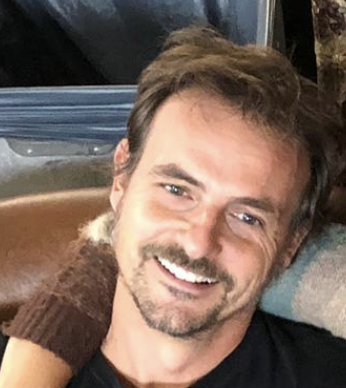
💬 And if you could chat with coworking members?
I would like to know what the most important thing is for them to feel comfortable in our coworking space. What services can we provide to better support them and promote their businesses? How can we improve networking opportunities and assist them in their endeavors? Ultimately, what can we offer to enhance both their professional and personal well-being while using our space?
💬 Last but not least, what’s your biggest dream for Talleres Palermo?
Well, one of my dreams is to maintain this space for as long as possible, despite the challenges posed by the rapidly changing neighborhood. With so many new flats being built, it's becoming increasingly difficult to preserve historic buildings like this.
Therefore, my biggest dream is to protect this building from demolition and to keep it intact. Additionally, I would love to create more spaces like this in other reused buildings. It's important to protect and preserve the beautiful buildings that still exist. Ultimately, I hope to see more places like Talleres Palermo in the future.
Our monthly event is coming up soon! On March 30th, we'll be exploring coworking in second and third-tier cities as well as in remote areas. To explore the topic with us, make sure to follow our Eventbrite page to get notified when we release the event and its programming.
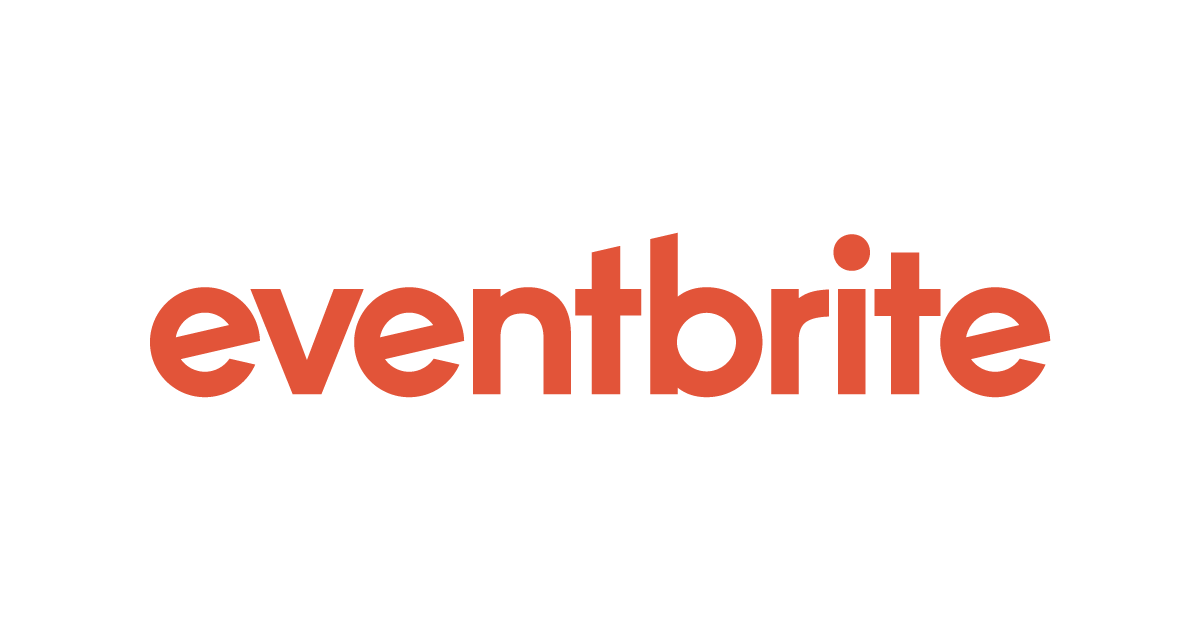

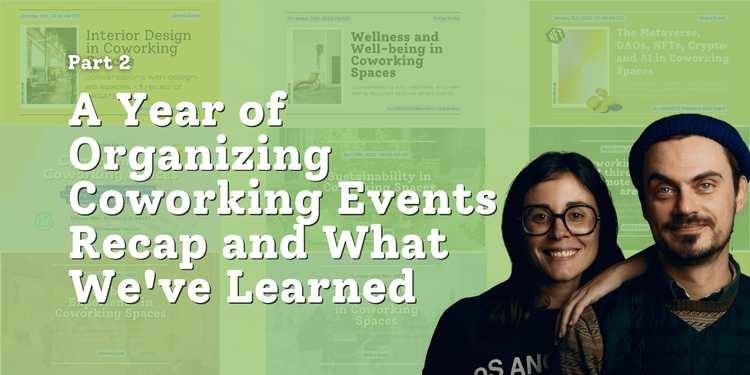




Member discussion